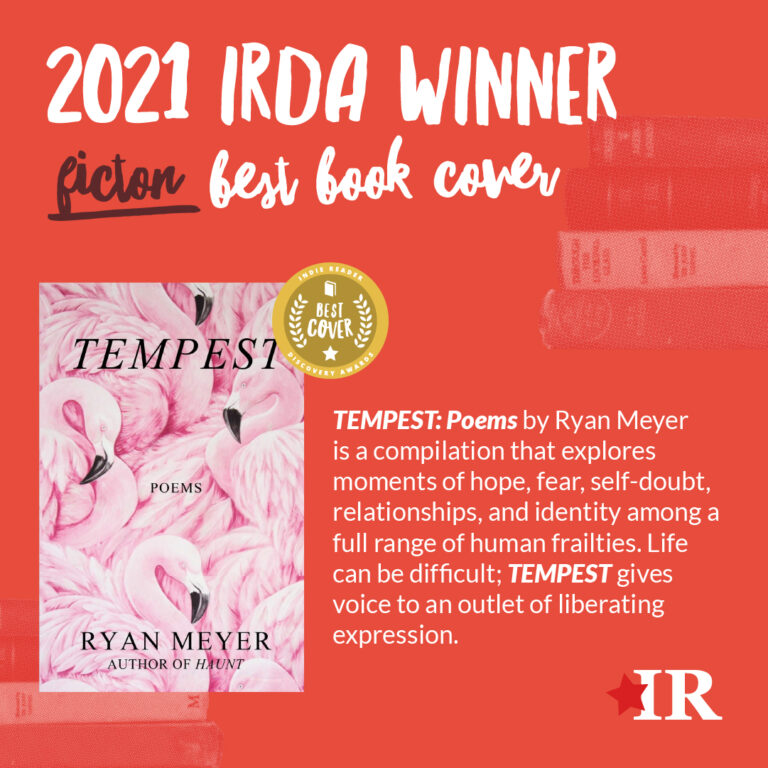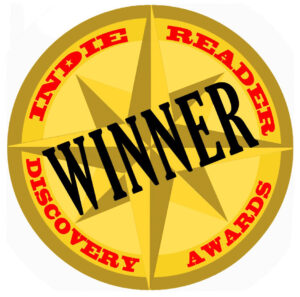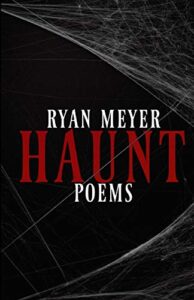Tempest: Poems was the winner for BEST COVER DESIGN/Fiction in the 2021 IndieReader Discovery Awards, where undiscovered talent meets people with the power to make a difference.
Following find an interview with author Ryan Meyer.
What is the name of the book and when was it published?
Tempest: Poems was published on March 1, 2021.
What’s the book’s first line?
“You’re crowded by sunsets / And forged from pink flamingo sunsets / That call you on Friday nights / Just when you’ve opened the bottle of pinot / From that trip to Wine Country.” – from “Flamingo”
What’s the book about? Give us the “pitch.”
Tempest explores fear, hope, and self-identity through striking fictional vignettes and surreal personal accounts. It is thus a marriage between the dichotomies of musical, rhythmic poetic dialogue, and the deeper, innate anxieties that accompany change. Discover your truest self and brave the Tempest.
What inspired you to write the book? A particular person? An event?
A good amount of these poems have been floating around in my notes for years, but it was really the coming to terms with myself more as a writer, a person, and a member of the LGBTQ+ community that made up what this book ultimately became. My personal journey, the events within and surrounding it, and of course my passion for writing fictional stories kept the ball rolling for my sophomore book of poems. Music is also a big inspiration for me; I quote a Deftones song to introduce the book, and I’d be lying if I said I might have been thinking of their Gore album when I decided on the final cover for this book. And “Tempest” may or may not also be the title of another Deftones song.
What’s the most distinctive thing about the main character? Who-real or fictional-would you say the character reminds you of?
There’s not one central character I focused on across every poem, but a lot of what each piece’s narrators have in common are their shared curiosities, their anxieties regarding what the future holds, and their connections with nature, which I tried to inject a lot of into this book. The way nature keeps us grounded when so many aspects of life can feel so uncertain and bigger than ourselves. For some of these poems, the narrators are definitely reflections of myself.
What’s the main reason someone should really read this book?
For starters, everyone should read more poetry! Poems are so unique because anyone can draw something different individually, relate to poems in so many ways. But I do hope readers can discover something about themselves while reading this book. I like to say that Tempest is for those struggling with who they are, for people trying to figure it all out. I hope the beauty in poetry can make readers feel less alone in their own personal storms.
Did you design the cover yourself? If not, who did and how did you find them (they did another cover you admired, they were recommended, etc)?
When it came to the overall design of my book, I was hoping to bring that element of nature out from the words and into the visual aspects, as well. I used Unsplash to find the design, and PicMonkey to arrange it into the cover spread it became. Those are great programs for indie writers and artists who struggle with finding and utilizing professional services. It’s a great starting point. Of course, I opted to give credit to where specifically on Unsplash I found the image, within the book.
What, if any, elements of the book did you want to convey in the cover design?
I wanted something that pops, but also a cover that feels simple yet busy. Something colorful yet soothing, to create that dichotomy between beauty and the title of the book. A representation of the way the word “tempest” sounds so poetic and has a beauty to it, but is defined by darkness and danger, in a way.
When did you first decide to become an author?
I’ve been writing stories since I was a kid, so that passion has always lived within me. I think I’ve always wanted to be a writer to some degree. Eventually, I decided to just take the leap and publish the work I had built upon for quite some time.
Is this the first you’ve written?
It is not. This is my second book of poems. My first collection, Haunt, was published in February 2018. Aside from writing, one of my passions is horror, a genre I wanted to explore deeper in my art. Haunt is the result of that, a piece of my work that I am very proud of.
What do you do for work when you’re not writing?
I’ve worked in marketing for a few years now, most recently in the social media space. In the past I have worked in the publishing industry, which taught me a lot when it came to publishing choices and promoting my work, where to submit and pitch, and other aspects of putting the book together. I still value those skills and utilize them in different ways in my current role.
How much time do you generally spend on your writing?
It varies, really. Poetry is a different animal than longer-form writing. If a poem is short, it’s short, but the longer pieces obviously take more time to hone and get just right. So it’s hard to say! The whole book took years to finalize though; once I felt good about the amount of pieces I wanted to include, and the versions of those pieces themselves, it knew it was time to get the process going to publish.
What’s the best and the hardest part of being an indie?
The best part is the flexibility, from the presentation of the work itself to the overall editing and publishing timeline. You are your own boss. The hardest part is getting your work out there on your own, knowing what avenues to take in terms of publicity, pitching events, connecting with other writers, bookstores, and especially your own readership. It’s not easy to do alone!
Would you go traditional if a publisher came calling? If so, why?
It depends on the publisher, really. But I would definitely consider. Having a team to support my work would be ideal; assistance with editing, marketing, and the whole publishing process is valuable and certainly helpful in the long run.


